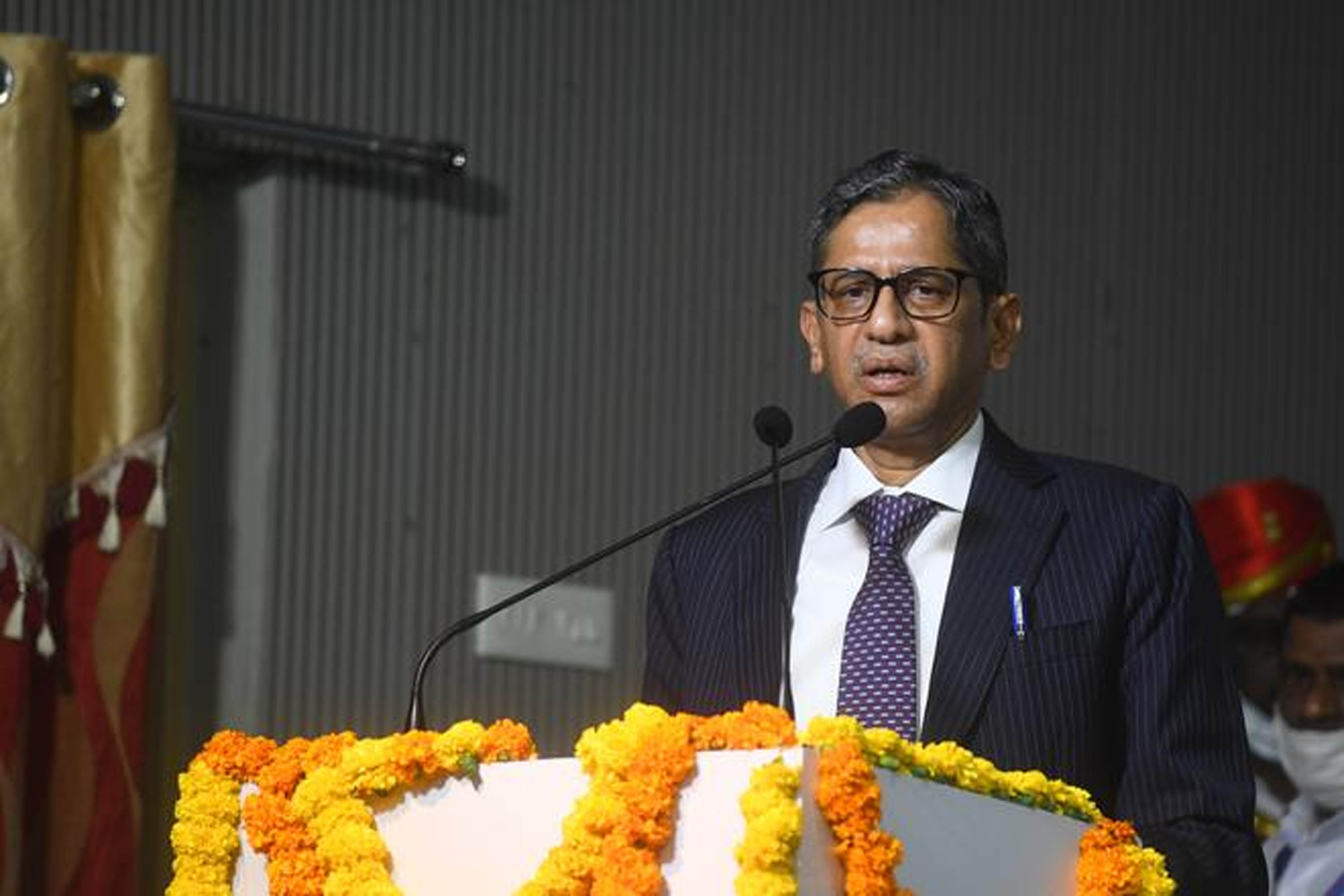Gujarat, April 9 : Chief Justice of India NV Ramana on Saturday said that the rapid development of technology has resulted in increased complexity even within the legal and regulatory landscape of the country.
“The rapid development of technology has resulted in increased complexity even within the legal and regulatory landscape of the country. For instance, technological developments such as cryptocurrency, data protection, encryption, and artificial intelligence have caused Courts and law enforcement agencies to engage with novel issues. With the passage of time, there is a possibility of increased litigation on these issues, ” CJI Ramana said while addressing a conference on “Mediation and Information Technology” at Ekta Nagar, Narmada, Gujarat.
CJI Ramana said that all those engaged in the justice dispensation mechanism: judges, lawyers, law enforcement agencies, and others, now need to have a thorough understanding of new technologies.
Online mediation has the ability to revolutionize the justice delivery system by promising simple and affordable justice for all, opined CJI Ramana as he pointed out that the adoption of technology and shift towards online dispute resolution, has resulted in the popularisation of Online Mediation.
Describing technology can be beneficially employed by the judicial system, CJI Ramana said that the profession is on the brink of a technological revolution.
He also pointed out how the pandemic has helped to speed up this process.
He also said, “We see every day that tons of paper are filed before Courts, especially in a big corporate litigation. They follow the old saying, “if you cannot convince the judge, confuse him”. Technology has the potential to simplify this process. ”
CJI also pointed out that Courts in India have started utilizing technology. “The E-Committees have taken up various initiatives such as developing E -filing, Computer Assisted Transcription, Document Display System and the integration of Courts under one IT Infrastructure. Harnessing modern technology, recently the Supreme Court has launched the “FASTER”, a digital platform for fast and secured delivery of urgent court orders in encrypted electronic format, to the stakeholders.”
“This would ensure the effective implementation of court orders, without any delay. Various High Courts have taken the transparency to a new level by way of live streaming of the proceedings using the cost-effective technology. I am sure many more would like to emulate this model,” he said.
He also highlighted Gujarat merchants, who understand better that, time wasted is money lost and this was the realization that encouraged the merchants of Gujarat to be innovative in their dispute resolution process.
“In our country, due to obstacles in formal litigation, people hesitate to approach judicial forums. The concept of ADR, through Lok Adalats, Gram Nyayalayas, mediation, and arbitration centers, has the potential to transform the legal landscape of India by providing millions of people a platform to settle their grievances. Imbibing effective ADR mechanisms into the judicial process can reduce pendency, save judicial resources and time, and allow litigants a degree of control over the dispute resolution process and its outcome, ” CJI said.
It is appropriate to reiterate the words of Mahatma Gandhi who had once said: “the true function of a lawyer is to unite parties”. Developing expertise in negotiation and mediation is much-needed for new-age lawyers and law students, CJI Ramana said.
While addressing the aspect of Information Technology and its utility in law, he said, “I am reminded of a quote from an English drama written by James Graham: “money is fine – but data is power”.
He also spoke about the mythological story of mediation undertaken by Lord Krishna, to prevent the war of Kurukshetra. “We all know the consequences of that failed mediation. Imagine, how much destruction would have been avoided; how lives could have been saved, and how the kingdoms would have prospered, had Krishna succeeded,” CJI said.
CJI said that conflicts are inevitable aspects of our lives and Misunderstandings, ego issues, lack of trust and greed can lead to conflicts.
Stressing that even the big conflicts can be resolved through understanding, he said, Conflicts have a human face.
“One must have the foresight to look beyond the conflict. A dispute should not spoil your relationship. Prolonged litigation can not only drain your resources but also cause animosity,” CJI said. (Agencies)
Home Latest News Rapid development has resulted in increased complexity within legal, regulatory landscape, says...


